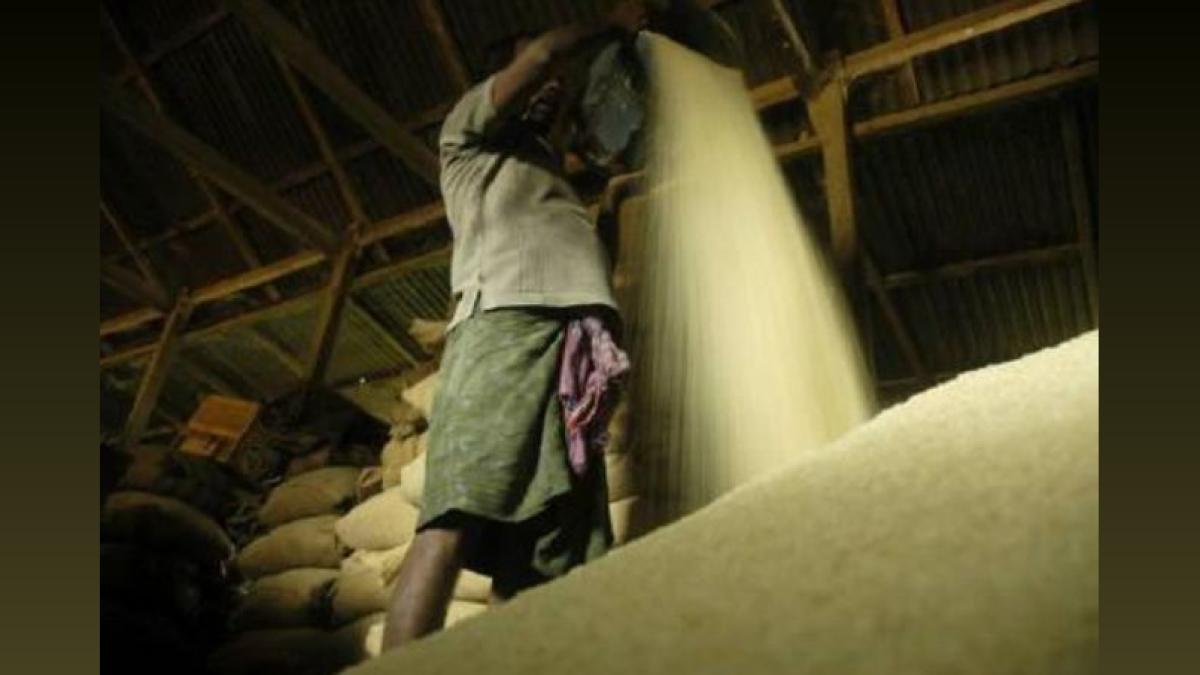Boost Indian Exports: Promote GI Products Globally
Experts urge India to promote Geographical Indications (GI) products like Kala namak and Nagpur oranges as premium offerings globally to boost exports. Learn about the benefits of GI tags and how they can contribute to India's economic growth.

New Delhi, Mar 6 (PTI) The government should promote GI (Geographical Indications) products like Kala namak, rice, and Nagpur oranges as premium offerings on the global stage to boost exports of these items as they hold huge potential in different countries, according to experts.
They said that a key weakness of Indian GI products compared to similar international goods is the lack of strong marketing and global brand recognition.
Many Indian GI products, despite their unique quality and cultural significance, are not as well-known internationally, Global Trade Research Initiative (GTRI) Founder Ajay Srivasatava said.
He said that this is due to inadequate branding, promotional activities, and limited access to global markets.
Additionally, issues related to consistent quality assurance and the efficient management of GI tags can also hinder the potential for Indian GI products to compete effectively on the international stage.
"Strengthening these areas could significantly enhance the global presence and market value of Indian GI products," Srivastava said.
Great Mission Group Society (GMGS), a non-government organisation that works on such goods, said there are thousands of products in India which can be categorised as GIs as they would benefit local communities and preserve the nation's heritage.
Founder and Chairman of GMGS Ganesh Hingmire said the society has so far filed applications seeking GI tags for as many as 89 products and out of that 61 have been published or categorised.
"I would like to suggest the government to take steps to fast track the process of granting GI tags to Indian goods," he said, adding that this would help increase the income of communities who are producing those items besides the country's boosting exports as such products hold huge potential in international markets.
Measures that are there at present to promote GIs include promotional campaigns, participation in international fairs, quality enhancement measures, legal protection, and the exploration of e-commerce platforms to broaden market access.
Financial and technical support is extended to GI producers for capacity building and marketing, fostering a conducive ecosystem for these goods.
Srivastava said that steps like implementing strict quality control and establishing traceability systems to meet international standards; developing brand identities and targeted marketing strategies for specific markets; using online marketplaces for wider accessibility; and encouraging partnerships between the government, industry bodies, would help boost exports of these items.
Once a product gets this tag, any person or company cannot sell a similar item under that name. This tag is valid for a period of 10 years following which it can be renewed.
The other benefits of GI registration include legal protection for that item, prevention against unauthorised use by others, and promoting exports.
A GI is primarily an agricultural, natural or a manufactured product (handicrafts and industrial goods) originating from a definite geographical territory.
Typically, such a name conveys an assurance of quality and distinctiveness, which is essentially attributable to the place of its origin.
There is a proper process of registration of GI products which includes filing of application, preliminary scrutiny and examination, show cause notice, publication in the geographical indications journal, opposition to registration, and registration.
Any association of persons, producers, organisation or authority established by or under the law can apply. The applicant must represent the interests of the producers.
It is a legal right under which the GI holder can prohibit others from using the same name.
The famous goods, which carry this tag include Basmati rice, Darjeeling Tea, Chanderi Fabric, Mysore Silk, Kullu Shawl, Kangra Tea, Thanjavur Paintings, Allahabad Surkha, Farrukhabad Prints, Lucknow Zardozi, and Kashmir Walnut Wood Carving.
Under the Paris Convention for the Protection of Industrial Property, GI is covered as an element of Intellectual Property Rights (IPRs). They have also covered under the WTO's Trade Related Aspects of Intellectual Property Rights (TRIPS) agreement.
India's Geographical Indications of Goods (Registration & Protection) Act 1999, has come into force with effect from September 15, 2003.
While countries like China have granted this tag to over 9,000 items and Moldova has over 3,000, India has given this status to less than 500 items.
They said that a key weakness of Indian GI products compared to similar international goods is the lack of strong marketing and global brand recognition.
Many Indian GI products, despite their unique quality and cultural significance, are not as well-known internationally, Global Trade Research Initiative (GTRI) Founder Ajay Srivasatava said.
He said that this is due to inadequate branding, promotional activities, and limited access to global markets.
Additionally, issues related to consistent quality assurance and the efficient management of GI tags can also hinder the potential for Indian GI products to compete effectively on the international stage.
"Strengthening these areas could significantly enhance the global presence and market value of Indian GI products," Srivastava said.
Great Mission Group Society (GMGS), a non-government organisation that works on such goods, said there are thousands of products in India which can be categorised as GIs as they would benefit local communities and preserve the nation's heritage.
Founder and Chairman of GMGS Ganesh Hingmire said the society has so far filed applications seeking GI tags for as many as 89 products and out of that 61 have been published or categorised.
"I would like to suggest the government to take steps to fast track the process of granting GI tags to Indian goods," he said, adding that this would help increase the income of communities who are producing those items besides the country's boosting exports as such products hold huge potential in international markets.
Measures that are there at present to promote GIs include promotional campaigns, participation in international fairs, quality enhancement measures, legal protection, and the exploration of e-commerce platforms to broaden market access.
Financial and technical support is extended to GI producers for capacity building and marketing, fostering a conducive ecosystem for these goods.
Srivastava said that steps like implementing strict quality control and establishing traceability systems to meet international standards; developing brand identities and targeted marketing strategies for specific markets; using online marketplaces for wider accessibility; and encouraging partnerships between the government, industry bodies, would help boost exports of these items.
Once a product gets this tag, any person or company cannot sell a similar item under that name. This tag is valid for a period of 10 years following which it can be renewed.
The other benefits of GI registration include legal protection for that item, prevention against unauthorised use by others, and promoting exports.
A GI is primarily an agricultural, natural or a manufactured product (handicrafts and industrial goods) originating from a definite geographical territory.
Typically, such a name conveys an assurance of quality and distinctiveness, which is essentially attributable to the place of its origin.
There is a proper process of registration of GI products which includes filing of application, preliminary scrutiny and examination, show cause notice, publication in the geographical indications journal, opposition to registration, and registration.
Any association of persons, producers, organisation or authority established by or under the law can apply. The applicant must represent the interests of the producers.
It is a legal right under which the GI holder can prohibit others from using the same name.
The famous goods, which carry this tag include Basmati rice, Darjeeling Tea, Chanderi Fabric, Mysore Silk, Kullu Shawl, Kangra Tea, Thanjavur Paintings, Allahabad Surkha, Farrukhabad Prints, Lucknow Zardozi, and Kashmir Walnut Wood Carving.
Under the Paris Convention for the Protection of Industrial Property, GI is covered as an element of Intellectual Property Rights (IPRs). They have also covered under the WTO's Trade Related Aspects of Intellectual Property Rights (TRIPS) agreement.
India's Geographical Indications of Goods (Registration & Protection) Act 1999, has come into force with effect from September 15, 2003.
While countries like China have granted this tag to over 9,000 items and Moldova has over 3,000, India has given this status to less than 500 items.
You May Like To Read
TODAY'S MOST TRADED COMPANIES
- Company Name
- Price
- Volume
- Vodafone-Idea
- 11.36 ( -2.49)
- 94664837
- AvanceTechnologies
- 1.16 (+ 4.50)
- 34522155
- Sunshine-Capital
- 0.26 ( -3.70)
- 29015901
- Alstone-Textiles
- 0.27 ( -3.57)
- 28695959
- Mehai-Technology
- 1.65 ( -4.62)
- 28262795






